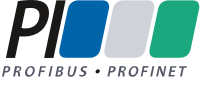Download
Laboratory Devices
PROFIBUS
Description:
The purpose of this specification is to support the standardisation of application process definitions of laboratory devices.
The scope of this specification is to define:
1) A base set of device parameters for operation, commissioning, maintenance, diagnosis,
2) A mechanism to achieve connectivity of parameters defined by user groups and device vendors.
The fieldbus standard PROFIBUS, standardised in IEC 61158 and IEC 61784 covers a large number of potential applications for industrial control, supervision and use in the field as well.
To co-ordinate application functions in a chemical laboratory based on devices such for example thermostats and scales, the definition of the variable and parameters syntax and semantics have to be defined. This is the main topic of this profile.
Details:
Version: 1.01
Order No: 2.412
Language: English
Files:
| # | Date | Filename | Type | Size |
|---|---|---|---|---|
| 26/04/2009 | Profile-Lab-Devices_2412_V101_Dec07.pdf | 1 MB |
The downloads section on profibus.com offers a wealth of valuable resources that are essential for companies working in industrial automation. These documents, including technical descriptions, installation guides, and white papers, provide detailed insights into the implementation and use of PROFIBUS and PROFINET technologies. By accessing these resources, engineers and technical teams can significantly improve their understanding and efficiency in deploying robust, standardized communication solutions in industrial environments.
For companies looking to gain even more from the PROFIBUS ecosystem, becoming a member of PROFIBUS & PROFINET International (PI) offers additional benefits. Members enjoy exclusive access to advanced technical documentation, expert certification programs, and development tools that can accelerate innovation and ensure compliance with the latest industry standards. Membership also provides networking opportunities with other industry leaders, fostering collaboration and knowledge sharing, which is crucial in staying ahead in the fast-evolving automation landscape.
By joining PI, companies position themselves at the forefront of industrial communication technology, ensuring they remain competitive and well-equipped to tackle future challenges.

